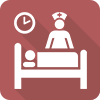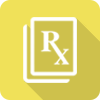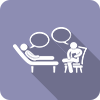- Can Heroin Abuse and Addiction Be Treated?
- Do I Need Addiction Treatment?
- Types of Treatment
- Dual Diagnosis Treatment: What To Expect
- How to Choose the Best Heroin Treatment
Rehab and Treatment for Heroin Addiction
Heroin addiction can be successfully treated.
However, treatment should be understood as an intervention to curtail a chronic, relapsing brain disease that can require lifelong management, and that may need to be treated repeatedly in order to achieve long-term sobriety.
Can Heroin Abuse and Addiction Be Treated?
Yes, heroin addiction can be successfully treated. The best-practice, evidence-based treatment recommendation is to follow a medication-assisted treatment (MAT) plan using buprenorphine (Suboxone) or methadone, in conjunction with psychosocial and recovery support services.
Consider that:
- The World Health Organization, the National Institute for Health and Clinical Excellence (NICE), and over 20 national guidelines recommend the use of methadone and buprenorphine for the treatment of opioid dependence.
- In May 2015, the American Society of Addiction Medicine (ASAM) confirmed that medication management of heroin addiction that includes equal focus on bio-psychosocial issues delivers the best results.
Psychosocial treatments such as cognitive behavioral therapy (CBT) and contingency management (CM) should accompany long-term MAT and be combined with:
Therapists are Standing By to Treat Your Depression, Anxiety or Other Mental Health Needs
Explore Your Options Today
Ad
- Group and family therapy.
- Wellness programs.
- Participation in support groups like Narcotics Anonymous that encourage healthy habits and help individuals cultivate new, sober peer groups.
Recent research demonstrates that treatment results improve when MAT is provided in conjunction with CM and CBT. When CM, relapse prevention, CBT, and CBT combined with CM were compared in a 2008 meta-analysis of 2,340 participants, it was found that:
- Any psychosocial treatment had better outcomes than participants who only had MAT without any psychosocial treatment.
- Contingency management and the combined CM and CBT intervention produced better outcomes than other psychosocial interventions.
Currently the MAT gold standard is buprenorphine, a partial opioid agonist used to treat heroin addiction in the privacy of your physician's office. This is often referred to as office-based opioid treatment (OBOT). However, while OBOT using buprenorphine is more convenient and has been less stigmatized, methadone has been used much more extensively, has higher retention rates, and is less expensive.
Do I Need Addiction Treatment?
There are some typical characteristics of someone's life once heroin addiction takes over. To see if you have a problem, ask yourself the following questions:
 If you answer yes to any of these questions, don't wait for heroin to create any more negative consequences in your life. Find a treatment center today.
If you answer yes to any of these questions, don't wait for heroin to create any more negative consequences in your life. Find a treatment center today.
- Have you unsuccessfully tried to cut down your heroin use? Have you tried "chipping" or using heroin intermittently to reduce your use by yourself?
- Have you damaged important family and professional relationships because of your inability to stop using heroin?
- Is much of your time taken up with thinking about, using, or obtaining heroin?
- Do you find you need more heroin to achieve the same euphoric effects?
- Has your heroin use created financial and/or legal problems?
Types of Treatment
Residential Treatment
 The longer you have been using and/or abusing heroin, the more likely that you will need residential treatment to help achieve goals of long-term recovery.
The longer you have been using and/or abusing heroin, the more likely that you will need residential treatment to help achieve goals of long-term recovery.
If you have tried to cut down your heroin use before, you are already acutely aware of how difficult this is to do when surrounded by people, places and things that support and promote your heroin dependency. As such, entering residential treatment provides a safe context removed from these triggers, which is a major source of relapse.
Inpatient Treatment vs. Outpatient Care
As mentioned above, once you are dependent on heroin, succeeding in quitting your heroin use is extremely difficult even in the best of circumstances.
If your insurance will cover and/or if you are able to afford it, medication-assisted treatment in an inpatient treatment setting is the gold standard of care, particularly if you have been using heroin for an extended period of time.
If you are a high-achieving professional who cannot take time out from your schedule to participate in treatment and have the available financial resources, a private, luxury or executive treatment center could be an excellent fit.
As an alternative to inpatient care, outpatient treatment is a very viable option. You can achieve excellent long-term results by combining outpatient care with a comprehensive set of wrap around recovery services that includes:
Medically Assisted
 The use of buprenorphine as the core recovery service in medically assisted treatment is recommended.
The use of buprenorphine as the core recovery service in medically assisted treatment is recommended.
According to the Substance Abuse and Mental Health Services Administration (SAMHSA), the use of buprenorphine provides critical physical support to mitigate cravings and provides a base for relapse prevention that succeeds when combined with psychosocial care.
You can begin to taper your heroin use and begin your recovery with the aid of buprenorphine in a primary care provider's office.
As advised previously, research shows that treating heroin dependence solely with MAT is usually not sufficient. Best practice guidelines from around the world suggest that MAT and psychosocial treatment provided together improves recovery results and abstinence.
In special populations such as opioid dependent pregnant women, people with HIV and adolescents, treatment guidelines still recommend MAT, although pharmacotherapies other than buprenorphine are sometimes used. For example, opioid dependent pregnant women should be treated with methadone or buprenorphine monoproduct (Subutex or buprenorphine without naloxone) instead of abstinence or withdrawal management.
To date, there is no data comparing the efficacy of buprenorphine versus methadone in adolescents, but buprenorphine, methadone and naltrexone are all recommended treatment options for opioid-dependent adolescents.
Psychosocial counseling is considered even more critical in treating youth, and recommended adjunct recovery services include:
- Family intervention.
- Vocational support.
- Risk reduction, particularly to reduce STD's.
- Extra focus on co-occuring mental health issues.
In the case of an opioid dependent individual with HIV, methadone was traditionally the first choice of pharmacotherapy used, despite the high occurrence of severe adverse interactions with HIV medications. Over the past 10 years, buprenorphine has become the preferred option because of the absence of adverse drug interactions.
Counseling and Therapy
 Therapy and counseling are integral aspects of effective heroin dependency treatment.
Therapy and counseling are integral aspects of effective heroin dependency treatment.
For example, recent research has shown that the use of CM is an effective component of outpatient treatment for heroin dependence, even among those not receiving any medication-assisted treatment. As well, a reduction in opioid-positive urine rates was demonstrated when CM was added to methadone maintenance treatment, and CM and outpatient therapy have been shown to decrease rates of relapse.
The following strategic care components are best suited for a comprehensive heroin addiction treatment plan:
- CM and CBT interventions combined with pharmacological therapies such as buprenorphine and/or methadone.
- Community reinforcement.
- Motivational enhancement therapy.
- 12-step facilitation (support groups such as Narcotics Anonymous).
While psychosocial treatment without pharmacological treatment has been shown to be ineffective, the specific type of psychosocial intervention appears to be less important than the act of the opioid dependent individual in recovery participating in selected treatments over a sustained period of time.
Partial Hospitalization and Intensive Outpatient (IOP)
 The benefit of partial hospitalization is that services such as medication and case management and myriad therapy options are provided. Your treatment plan is generally uniquely composed to best address your particular needs, and you will receive services under the auspices of senior level medical personnel.
The benefit of partial hospitalization is that services such as medication and case management and myriad therapy options are provided. Your treatment plan is generally uniquely composed to best address your particular needs, and you will receive services under the auspices of senior level medical personnel.
The advantage of intensive outpatient heroin addiction treatment is a sustained focus on the dual-diagnosis (underlying mental health issues that created or exacerbate your heroin use disorder) issues you are likely to have if you abuse heroin. Relapse prevention programs are much more extensive and practical.
Examples of the types of skill building activities available in intensive outpatient care are:
- Dedicated counseling sessions for improving diet and exercise.
- Better understanding the way in which your brain and emotions affect your recovery.
- How to best manage anxiety and other mental health issues.
Dual Diagnosis Treatment: What To Expect
The interconnectedness of mental illness and substance use disorders is known, but not well understood, primarily because of the extreme complexity of shared etiology.
Establishing causality is problematic because of the common vulnerabilities and symptoms. Dr Nora Volkow, the Director of the National Institute on Drug Abuse (NIDA) explains, "...while we cannot always prove a connection or causality, we do know that certain mental disorders are established risk factors for subsequent drug abuse - and vice versa".
The most prevalent mental health issues among heroin dependent individuals are:
- Other substance abuse disorders
- Depressive disorders.
- Post traumatic stress disorder (PTSD)
- Substance-induced psychiatric disorders.
- Antisocial and borderline personality disorder.
These are treatable conditions. Data shows that addressing addiction and mental health disorders concurrently is more effective than treating these issues independently. Getting diagnosed early is particularly important since individuals with undiagnosed co-occurring mental illness are more likely to relapse during opioid dependence treatment.
Psychiatric assessment at the initiation of treatment, and ongoing behavioral health interventions are necessary adjuncts to treating opioid dependence.
Your treatment center should provide holistic services that include mindfulness training and wellness services in addition to medications for mental health disorders.
Folks in recovery often say, if you start questioning whether you are addicted to heroin, it is likely that you are. Somewhere deep in your gut you know if your life has become unmanageable and if you are reliant on the use of heroin.
Making the decision to get clean is difficult. You may even have stigma attached to the notion of going into recovery and have managed to keep your heroin addiction a secret from others.
If you have seen yourself in this article, please call. A treatment support representative can provide more information about opiate recovery options at
1-888-993-3112Who Answers?.
How to Choose the Best Heroin Treatment
Obtain every possible resource to fight your heroin addiction.
The National Institute on Drug Abuse (NIDA) reports that "Although behavioral and pharmacological treatments can be extremely useful when utilized alone, research shows that for some people, integrating both types of treatments is the most effective approach."
Treatment that combines medication assisted treatment (MAT) and psychosocial treatment such as CM and CBT, or a combination of the two is recommended.
Once you have identified treatment centers that meet this criteria, selecting the best treatment for you depends on factors such as:
- Price.
- Efficacy.
- Location.
- Personal preferences.
- Rehab philosophy.
- Number of qualified treatment professionals.
- Success rates.
Ideally, the treatment center that you select will be accredited by the Commission on Accreditation of Rehabilitation Facilities (CARF), the Council on Accreditation (COA), and/or the Joint Commission on Accreditation of Healthcare Organizations (JCAHO).
If you're concerned that you or a loved one is suffering from heroin dependency, call
1-888-993-3112Who Answers? to speak with someone about the most effective heroin addiction treatment options now.



 The benefit of partial hospitalization is that services such as medication and case management and myriad therapy options are provided. Your treatment plan is generally uniquely composed to best address your particular needs, and you will receive services under the auspices of senior level medical personnel.
The benefit of partial hospitalization is that services such as medication and case management and myriad therapy options are provided. Your treatment plan is generally uniquely composed to best address your particular needs, and you will receive services under the auspices of senior level medical personnel.
